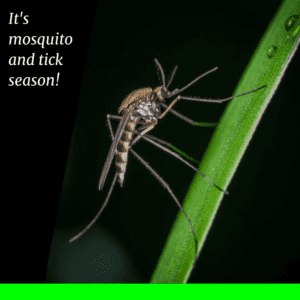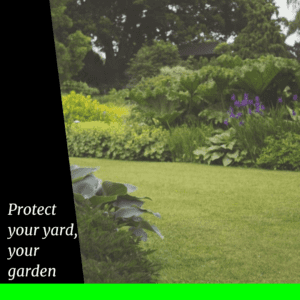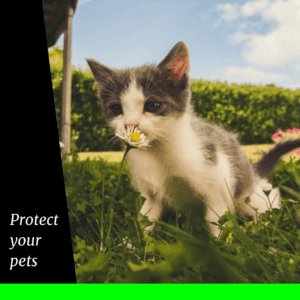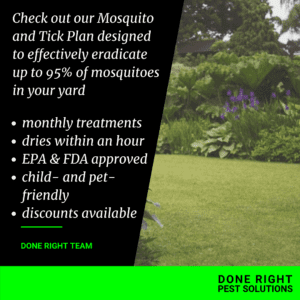Do you normally get mosquito bites during the day or in the evening? On your arms or neck or ankles and feet? Where you get mosquito bites could be indicator of what type of mosquitoes live in your yard. Learn the 3 species of mosquitoes in Minnesota and how to treat each.
For the best mosquito control outdoor services, mosquito control in yard services, contact Done Right Pest Solutions for a free quote: 651-342-9489.
Did you know about 166 species of mosquitoes are found in the United States.
Table of Contents:
- Aedes Mosquito
- Culex Mosquito
- Anopheles Mosquito
- How We Treat for Mosquitoes
- Other Ways to Treat for Mosquitoes
- Conclusion & Next Steps
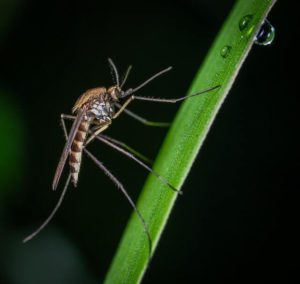
Aedes
Aedes are your backyard dwellers. They bite during daytime hours when most are outside. They travel short distances. They breed in anything as small as a bottle cap or as large as a giant empty swimming pool. If you have a pool, it is important to get mosquito control backyard pest control.
Aedes mosquitoes are black with white stripes on their bodies. These mosquitoes are more commonly found in tropical areas of the United States.
Diseases these mosquitoes carry are: dengue fever, yellow fever, zika virus, West Nile virus, and chikungunya.
The most common subspecies of Aedes that transmits diseases and viruses are the Aegypti and the Albopictus. The Asian Tiger Mosquito is an example of the Aedes Albopictus mosquito, which is one of the only mosquitoes to have such a limited flight range. They can only travel about 300 feet.
Most mosquitoes can fly between 1 and 3 miles, but many mosquito species in the Midwest fly up to 7 miles, especially with the help of wind. Because mosquitoes can travel so far, it is important for not only you to have mosquito control outdoor services, but for your neighbors to have mosquito control outdoor services, too. Call Done Right Pest Solutions for a free quote for a one-time service or seasonal service today!
Because they breed in standing water, larvicidal treatment is a more accurate treatment for Aedes mosquitoes. This involves treating the surface where the standing water sits or the water itself (as long as it doesn’t connect to a natural flowing water source.
Options for larval mosquito treatments include mosquito dunks. These are little disks that can be placed in a stagnant body of water, that doesn’t flow into another body of water. These disks emit product into the water over time, creating an effect approach that lasts about a month for mosquito eggs, larvae, and pupae. This is not an effective treatment for adult mosquitoes.
Fun fact: these dunks or disks hold a type of bacteria that causes mosquito larvae or pupae intestines to burst once consumed.
As you’ve learned, it is important to get mosquito control at home set up to protect your family. Done Right Pest Solutions serves all 7 metro counties MN as well as 3 western Wisconsin counties in need of pest control services.
Culex
Culex mosquitoes commonly breed in stagnant water. They will often be attracted to polluted water. Culex breed in water with a little flow to it like drainage pipes, septic tanks, catch basins, etc.
Culex transmits West Nile virus and a number of encephalitis. These mosquitoes are most common in large U.S. cities and are simply tan in color.
Because Culex breeds in harder to reach areas, they are best treated as adults. Still, mosquito control in yards is very important. Call Done Right Pest Solutions for a free quote: 651-342-9489.
Anopheles
Anopheles will choose a high vegetation area to breed, any water with a lot of plant life.
Anopheles mosquitoes transmit malaria, among other diseases. For this reason, it is important to get mosquito control in yard.
Adulticidal mosquito treatment is more accurate for Culex and Anopheles. It’s not a bad idea to also use larval treatments with these varieties of mosquitoes.
During the day, mosquitoes will often find places in your yard to rest in order to conserve energy until it can find its next blood meal. Places where mosquitoes rest are shaded areas in trees, bushes, tall grasses, shrubbery, etc. This is why we treat these areas.
Applying a liquid product to these areas ensures that any resting mosquitoes at that time will be killed on contact and that once the product dries, it will have a residual effect on all the mosquitoes that come to rest in the future days to weeks. The product should sterilize these mosquitoes to stop the breeding with that generation.
For a free quote for mosquito control near you, give us a call: 651-342-9489.
How We Treat Mosquitoes
Done Right Pest Solutions expert technicians specialize in mosquito control backyard pest control services. First our pest control technicians will walk the yard or patio space where the mosquito treatment is to be applied, inspecting as they walk, and making note of any potential problem areas for the area.

Next the technician will treat the perimeter of the yard along the grass line, the fence line, and any other lawn ornamentation indicating boundary of your yard and your neighbor’s yard. This treatment creates a subtle barrier for the mosquitoes.
Because mosquitoes fly and most likely will fly right over the barrier, other areas of the yard must be treated in addition. However, they may very well stop to rest on a fence post and come into contact with our product that will result in death of the mosquito.
Once the barrier is treated, the pest control technician will treat any shrubbery, bushes, trees, tall grasses, and other vegetation in your yard. This vegetation creates natural shade and mosquitoes love to stop to rest among the branches, leaves, etc.
There are many aspects of mosquito control at home that need to be taken into consideration when hiring a pest control company.

It isn’t important to treat trees high up. Mosquitoes do not fly more than 10 feet off the ground typically. Simply treating the base of the tree plus the first few branches will suffice for efficient mosquito control.
If your yard has ticks, it may be important to treat higher into the trees, as ticks will often climb trees to drop onto hosts or reach out to hosts.
Finally, the technician will treat any areas of the yard or patio area that he had made note of during the inspection. An example of a potential breeding area may be a dip in the patio that collects rain water for a couple of days.
If you have a pond in your yard, we may use a mosquito dunk in there to eliminate it as a breeding site.
Treating these areas preventatively reduces the likelihood that mosquitoes will breed in your yard, decreases the population, and drastically improves your long-term quality and enjoyment of your yard.
By reducing between 90-95% of the population of disease and illness transmitting insects, it greatly decreases your risks of getting sick from these pests.
We offer one-time services and a Mosquito and Tick Plan. Get your yard covered for preventative mosquito control today!
Other Ways to Treat Mosquitoes
If you’re looking for other ways how to treat mosquitoes that you can do here is a list of alternative methods. The following are other methods people often implement in their yards for mosquito control at home.
- Employ bats. Bats eat mosquitoes. You could get a bat house and at night they can eat up the mosquito food source your yard provides!
- Use frogs. Frogs eat mosquitoes, along with flies and other flying insects. If your yard has a pond, consider creating a frog habitat and these little guys will eat the adult mosquitoes flying nearby the pond.
- Consider dragon flies. Dragonflies eat mosquitoes at all stages of their life. They hover close to water and will eat the eggs, larvae, and pupae mosquitoes. They of course fly and can catch the adult mosquitoes as well.
- Another option is the Gambusia fish. This fish eats mosquito larvae. If you have a pond and are able to stock it with this kind of fish, it will eat up the growing mosquitoes in your pond!
These methods may be difficult, and there are of course easier repellent options like citronella candles, tiki torches, bug zappers, etc. But for the most effective mosquito control, contact a pest professional like Done Right Pest Solutions today. For other yard pests, check out this category within our blog.
Conclusion & Next Steps
You learned the 3 species of mosquitoes in Minnesota that could be in your yard and how they breed. You learned the most accurate ways to treat for each, along with some alternative treatment options.
We explained how we thoroughly treat for mosquitoes, so if you want to get back to enjoying your yard this summer, give us a call. We would love to help! 651-342-9489.
Done Right Pest Solutions offers the most comprehensive pest control services, the best mosquito control near you; so give us a call. DIY mosquito control at home pales in comparison to our expert technicians’ service! 651-342-9489.
You may also be interested in learning about 4 steps for effective mosquito control.
We look forward to helping you!
Done Right Team
What is your method of mosquito control? Do you mostly rely on repellents? We’d love to hear from you in the comments!
Want little pieces of information from these posts in your email inbox? If so, sign up for our free newsletter! Tailored content made easy!


